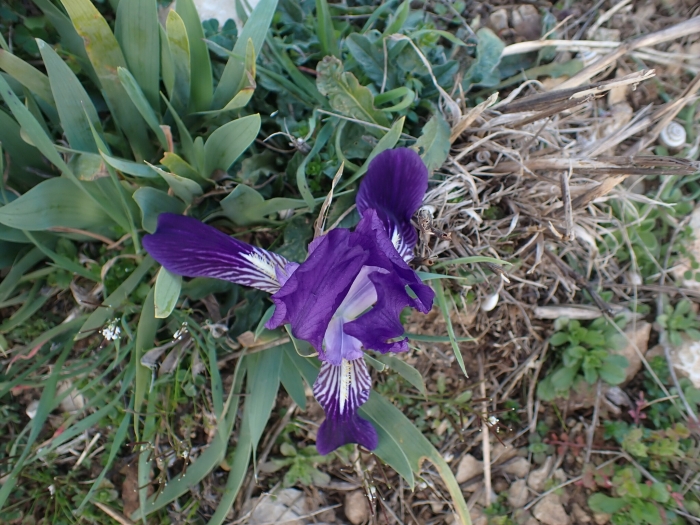Crimean Iris
(Iris lutescens)
Crimean Iris (Iris lutescens)
/
/

Franck Cabot
CC BY 4.0
Image By:
Franck Cabot
Recorded By:
Copyright:
CC BY 4.0
Copyright Notice:
Photo by: Franck Cabot | License Type: CC BY 4.0 | License URL: http://creativecommons.org/licenses/by/4.0/ | Rights Holder: Franck Cabot | Publisher: iNaturalist | Date Created: 2024-02-21T17:56:11-08:00 |
























Estimated Native Range
Summary
Iris lutescens, commonly known as Crimean Iris, is a perennial herb native to the Mediterranean region, specifically to the open woodlands and rocky hillsides of Northeast Spain, Southern France, and Italy. It typically grows up to 12 inches tall and is characterized by its broad, sword-like leaves that are about 1 inch wide. The Crimean Iris produces showy yellow or violet flowers in the spring (March–April), which are highly valued for their beauty. The plant forms clumps through its rhizomatous growth habit, allowing it to spread gradually over time.
The Crimean Iris is appreciated for its hardiness, withstanding temperatures down to -20°C or less, and its drought tolerance during the summer dormant period. It is often used in rock gardens, borders, and as a ground cover due to its low maintenance and ability to thrive in slightly acidic, well-drained soils. In cultivation, it requires full sun to flourish and is recognized for its ornamental value, having received the Royal Horticultural Society’s Award of Garden Merit. Gardeners should be aware that while generally disease-free, the plant can suffer from iris borer and rhizome rot if conditions are too wet.CC BY-SA 4.0
The Crimean Iris is appreciated for its hardiness, withstanding temperatures down to -20°C or less, and its drought tolerance during the summer dormant period. It is often used in rock gardens, borders, and as a ground cover due to its low maintenance and ability to thrive in slightly acidic, well-drained soils. In cultivation, it requires full sun to flourish and is recognized for its ornamental value, having received the Royal Horticultural Society’s Award of Garden Merit. Gardeners should be aware that while generally disease-free, the plant can suffer from iris borer and rhizome rot if conditions are too wet.CC BY-SA 4.0
Plant Description
- Plant Type: Herb
- Height: 0.5-1 feet
- Width: 0.5-1 feet
- Growth Rate: Slow, Moderate
- Flower Color: Purple, Yellow
- Flowering Season: Spring
- Leaf Retention: Deciduous
Growth Requirements
- Sun: Full Sun
- Water: Medium
- Drainage: Medium, Fast
Common Uses
Bee Garden, Border Plant, Low Maintenance, Rock Garden
Natural Habitat
Open woodlands and rocky hillsides in the Mediterranean region
Other Names
Common Names: Yellow Iris, Western Yellow Iris, Dwarf Iris
Scientific Names: , Iris lutescens, Chamaeiris angustifolia, Gynandriris italica, Iris biflora f. lisbonensis, Iris burnatii, Iris chamaeiris, Iris chamaeiris subsp. italica, Iris chamaeiris subsp. olbiensis, Iris chamaeiris var. italica
GBIF Accepted Name: